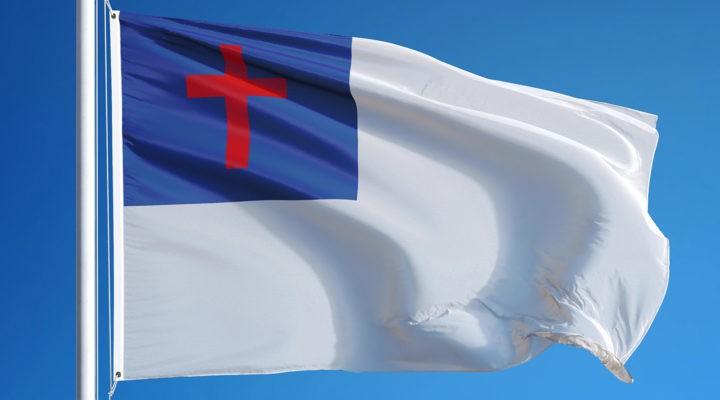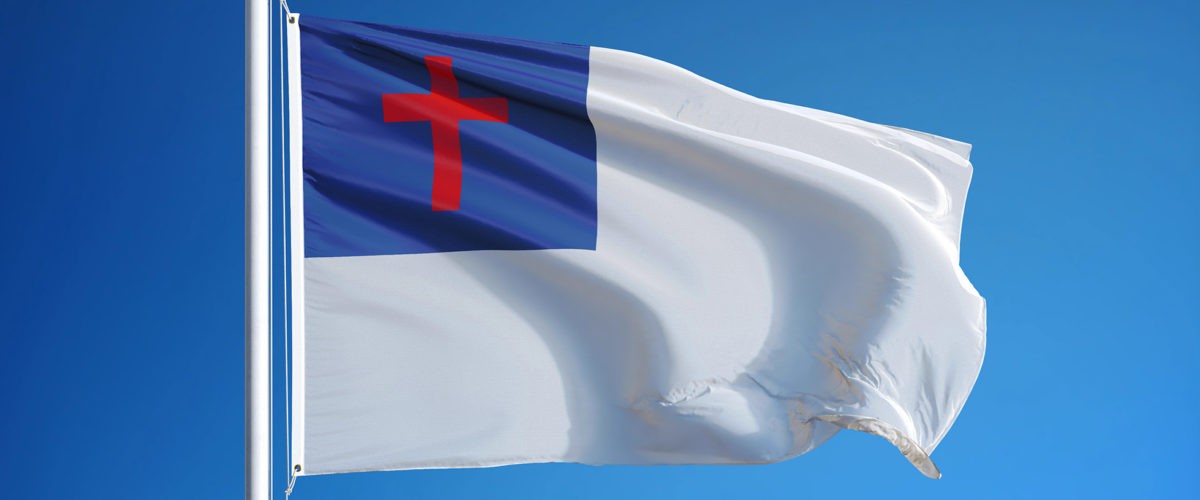The City of Boston so clearly violated U.S. law on religious liberty that a normally divided U.S. Supreme Court ruled unanimously against the city May 2.
Given the tense nature of debate about the meaning of religious freedom amid the nation’s culture wars that have been politicized all the way to the high court, the unanimous ruling showcased a rare point of unity.
And ironically, the ruling in Shurtleff v. Boston came on the same day Politico reported on a purportedly leaked draft opinion on another high-profile case. According to the online report published the evening of May 2, the court is poised to completely invalidate the 1973 ruling in Roe v. Wade.
The Boston case strikes at the heart of a favorite rallying cry of religious conservatives — the belief that they are denied free expression of their beliefs — but also drew attention of more traditional church-state separationists who believe Boston’s particular policies did not adhere to federal law and were therefore discriminatory.
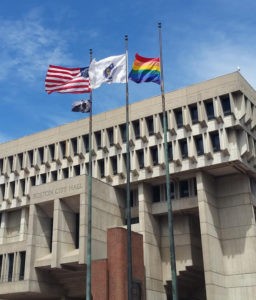
Flags at Boston City Hall (City of Boston image)
At issue is a set of two flagpoles owned by the City of Boston. The city offers civic groups the opportunity to fly their flags briefly on the poles to encourage civic engagement. Yet when a conservative Christian group called Camp Constitution applied to fly its flag — which is widely known as the Christian flag — city officials denied the request citing the religious nature of the flag’s “speech.”
There are numerous facts unique to Boston’s practice, such that the court’s ruling may not have far-reaching effect. However, the ruling does make clear for all government bodies that they need to have policies in place and understand the difference between government speech and all other speech.
The City of Boston had no written policies on its community flag program and never had turned down a request until Camp Constitution.
Writing for the court’s unanimous majority, Justice Stephen Breyer said that “on balance, Boston did not make the raising and flying of private groups’ flags a form of government speech. That means, in turn, that Boston’s refusal to let Shurtleff and Camp Constitution raise their flag based on its religious viewpoint ‘abridge(ed)’ their ‘freedom of speech.’”
Five other justices — Chief Justice John Roberts and Justices Sonia Sotomayor, Elena Kagan, Brett Kavanaugh and Amy Coney Barrett — joined in Breyer’s opinion, although Kavanaugh wrote a brief separate opinion. Kavanaugh emphasized: “A government may not treat religious persons, religious organizations, or religious speech as second-class.”
Justice Samuel Alito wrote a separate concurring opinion that was joined by Justices Clarence Thomas and Neil Gorsuch. And Gorsuch also wrote his own separate opinion that was joined by Thomas.
That’s four separate opinions to express a unanimous ruling.
The Gorsuch-Thomas opinion took aim at the court’s previous interpretation of the First Amendment’s Establishment Clause, criticizing the court’s 1971 decision in Lemon v. Kurtzman, which created a test for whether a government law or practice violates the Establishment Clause.
Gorsuch called the Lemon Test “an anomaly or a mistake” because it “ignored the original meaning of the Establishment Clause,” “disregarded mountains of precedent,” and “substituted a serious constitutional inquiry with a guessing game.”
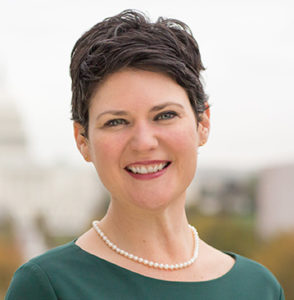
Amanda Tyler
Amanda Tyler, executive director of Baptist Joint Committee for Religious Liberty, tweeted after the court’s announcement: “I’m not surprised, based on the unique facts of this case (Boston’s policy and practice) and questioning by the justices at oral argument.”
Breyer’s opinion made clear the court saw the Boston flagpoles as “a free-speech forum, in which religious voices are welcome,” she added.
However, “I’m concerned by the concurring opinions by Alito and Gorsuch, who have a much more limited view of what constitutes government speech and a violation of the Establishment Clause. Only Thomas joined them in these extreme views.”
For now, “the impact of this opinion seems fairly limited, maybe even to the particular facts of this policy,” Tyler said. And one lesson is that “there is a way for cities to make clear that flag raisings constitute government speech. Boston didn’t do it here, but it can revise its policy for the future.”
Rachel Laser, president of Americans United for Separation of Church and State, echoed some of Tyler’s sentiments but also sounded a warning about possible abuse of the ruling.

Rachel Laser
“Because the court found the flags were private, not government, speech, Boston no longer has a say in which flags can be flown at city hall,” she said. “This decision doesn’t change the Constitution’s requirements that the government cannot promote, favor, endorse or sponsor religion.
“Nevertheless, this ruling could undermine church-state separation if it is abused in ways that end up favoring the dominant religious majority. But governments might avoid that by closing the forum at any time, as the court noted. Additionally, the flags flying above city hall would have been government speech if Boston had stated so in a policy or exercised more discretion in deciding which flags to display. Other governments might take that path.”
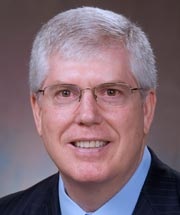
Mat Staver
Mat Staver, founder and chairman of the conservative evangelical group that represented Camp Constitution, hailed the unanimous ruling as a victory beyond this one case.
“This 9-0 decision from the Supreme Court strikes a victory for private speech in a public forum. This case is so much more significant than a flag,” he said. “Boston openly discriminated against viewpoints it disfavored when it opened the flagpoles to all applicants and then excluded Christian viewpoints. Government cannot censor religious viewpoints under the guise of government speech.”
Related articles:
Justices appear skeptical of Boston’s reasons for excluding Christian flag
In Boston flag case, ACLU and Biden administration take the side of a conservative Christian group

